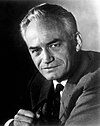Related Research Articles

Barry Morris Goldwater was an American politician and major general in the Air Force Reserve who served as a United States senator from 1953 to 1965 and 1969 to 1987, and was the Republican Party's nominee for president in 1964.

The 1964 United States presidential election was the 45th quadrennial presidential election. It was held on Tuesday, November 3, 1964. Incumbent Democratic President Lyndon B. Johnson defeated Senator Barry Goldwater, the Republican nominee, in a landslide. Johnson was the fourth and most recent vice-president to ascend to the presidency following the death of his predecessor and to win a term in his own right. With 61.1% of the popular vote, Lyndon B. Johnson won the largest share of the popular vote for the Democratic Party in history, and the highest for any candidate since the advent of widespread popular elections in the 1820s.
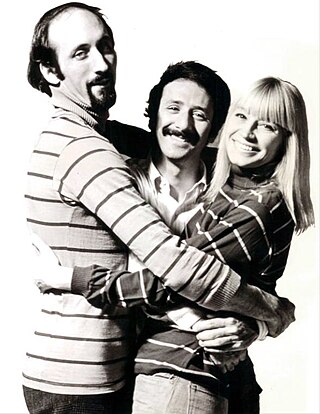
Peter, Paul and Mary were an American folk group formed in New York City in 1961 during the American folk music revival phenomenon. The trio consisted of tenor Peter Yarrow, baritone Paul Stookey, and contralto Mary Travers. The group's repertoire included songs written by Yarrow and Stookey, early songs by Bob Dylan, and covers of other folk musicians. They were enormously successful in the early- and mid-1960s, with their debut album topping the charts for weeks, and helped popularize the folk music revival. After the death of Travers in 2009, Yarrow and Stookey continued to perform as a duo under their individual names.
Folk rock is a genre of rock music with heavy influences from English folk and American folk music. Combining the elements of folk and rock music, it arose in the United States, Canada, and the United Kingdom in the mid-1960s. In the U.S., folk rock emerged from the folk music revival. Performers such as Bob Dylan and the Byrds—several of whose members had earlier played in folk ensembles—attempted to blend the sounds of rock with their pre-existing folk repertoire, adopting the use of electric instrumentation and drums in a way previously discouraged in the U.S. folk community. The term "folk rock" was initially used in the U.S. music press in June 1965 to describe the Byrds' music.
John Coburn Stewart was an American songwriter and singer. He is known for his contributions to the American folk music movement of the 1960s while with the Kingston Trio (1961–1967) and as a popular music songwriter of the Monkees' No. 1 hit "Daydream Believer" and his own No. 5 hit "Gold" during a solo career spanning 40 years that included almost four dozen albums and more than 600 recorded songs.
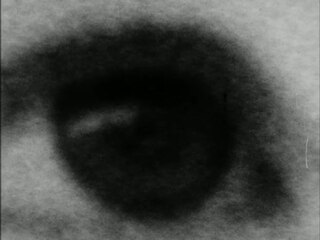
"Daisy", sometimes referred to as "Daisy Girl" or "Peace, Little Girl", is an American political advertisement that aired on television as part of Lyndon B. Johnson's 1964 presidential campaign. Though aired only once, it is considered one of the most important factors in Johnson's landslide victory over the Republican Party's candidate, Barry Goldwater, and a turning point in political and advertising history. A partnership between the Doyle Dane Bernbach agency and Tony Schwartz, the "Daisy" advertisement was designed to broadcast Johnson's anti-war and anti-nuclear positions. Goldwater was against the Nuclear Test Ban Treaty and suggested the use of nuclear weapons in the Vietnam War, if necessary. The Johnson campaign used Goldwater's speeches to imply he would wage a nuclear war.
"Mr. Tambourine Man" is a song written by Bob Dylan, released as the first track of the acoustic side of his March 1965 album Bringing It All Back Home. The song's popularity led to Dylan recording it live many times, and it has been included in multiple compilation albums. It has been translated into other languages and has been used or referenced in television shows, films, and books.

The Times They Are a-Changin' is the third studio album by American singer-songwriter Bob Dylan. It was released on February 10, 1964 through Columbia Records. Whereas his previous albums Bob Dylan and The Freewheelin' Bob Dylan consisted of original material among cover songs, Dylan's third album was the first to feature only original compositions. The album consists mostly of stark, sparsely arranged ballads concerning issues such as racism, poverty, and social change. The title track is one of Dylan's most famous; many feel that it captures the spirit of social and political upheaval that characterized the 1960s.
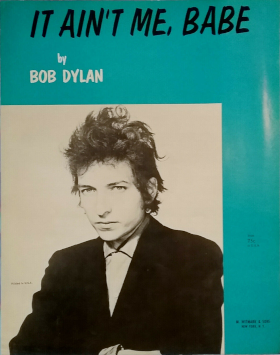
"It Ain't Me Babe" is a song by Bob Dylan that originally appeared on his fourth album Another Side of Bob Dylan, which was released in 1964 by Columbia Records. According to music critic Oliver Trager, this song, along with others on the album, marked a departure for Dylan as he began to explore the possibilities of language and deeper levels of the human experience. Within a year of its release, the song was picked up as a single by folk rock act the Turtles and country artist Johnny Cash.
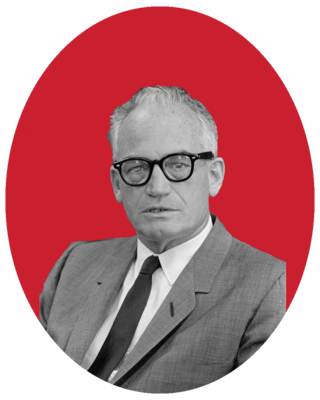
The 1964 Republican National Convention took place in the Cow Palace, Daly City, California, from July 13 to July 16, 1964. Before 1964, there had been only one national Republican convention on the West Coast, the 1956 Republican National Convention, which also took place in the Cow Palace. Many believed that a convention at San Francisco indicated the rising power of the Republican Party in the west.

The Chad Mitchell Trio, later known as The Mitchell Trio, were an American vocal group who became known during the 1960s. They performed traditional folk songs and some of John Denver's early compositions. They were particularly notable for performing satirical songs that criticized current events during the time of the Cold War, the civil rights movement, and the Vietnam War.
The 1964 presidential campaign of Barry Goldwater began when United States Senator Barry Goldwater of Arizona elected to seek the Republican Party nomination for President of the United States to challenge incumbent Democratic President Lyndon B. Johnson. Early on, before officially announcing his candidacy for the presidency, Goldwater was accused by Governor of New York Nelson Rockefeller of attempting to galvanize Southern and Western Republican support while neglecting the industrial northern states, eventually becoming one of Goldwater's primary opponents in the race for the Republican Party's nomination in 1964.

From March 10 to June 2, 1964, voters of the Republican Party elected 1,308 delegates to the 1964 Republican National Convention through a series of delegate selection primaries and caucuses, for the purpose of determining the party's nominee for president in the 1964 United States presidential election.

The 1964 United States presidential election in Idaho took place on November 3, 1964, as part of the 1964 United States presidential election, which was held throughout all 50 states and Washington, D.C. Voters chose four representatives, or electors to the Electoral College, who voted for president and vice president.
Victor "Vic" Gold was an American journalist, author, and Republican political consultant. Gold began his career as a lawyer and advisor to the Democratic Party in Alabama before switching to the Republican Party. He worked as deputy press secretary for Senator Barry Goldwater during the 1964 presidential election and press secretary for Vice President Spiro T. Agnew from 1970 to 1973.

From March 10 to June 2, 1964, voters of the Democratic Party chose its nominee for president in the 1964 United States presidential election. Incumbent President Lyndon B. Johnson was selected as the nominee through a series of primary elections and caucuses culminating in the 1964 Democratic National Convention held from August 24 to August 27, 1964, in Atlantic City, New Jersey.
"Oh, Freedom" is a post-Civil War African-American freedom song. It is often associated with the Civil Rights Movement, with Odetta, who recorded it as part of the "Spiritual Trilogy", on her Odetta Sings Ballads and Blues album, and with Joan Baez, who performed the song at the 1963 March on Washington. Baez has since performed the song live numerous times, both during her concerts and at other events. The song was first recorded in 1931 by the E. R. Nance Family as "Sweet Freedom". Writer and radio producer Richard Durham used it as an opening in his 1948–1950 radio anthology Destination Freedom.
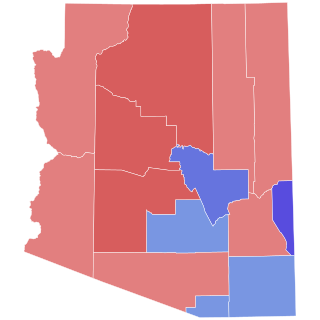
The 1968 United States Senate election in Arizona took place on November 5, 1968. Incumbent Democratic U.S. Senator Carl Hayden did not run for reelection to an eighth term, with his longtime staff member Roy Elson running as the Democratic Party nominee to replace him. Elson was defeated by a wide margin, however, by former U.S. Senator and 1964 Republican presidential nominee Barry Goldwater. Prior to Goldwater's election, the seat had been held for decades by the Democratic Party under Carl Hayden, but after this election remained in Republican Party control continuously for 52 years, until Democrat Mark Kelly won in the 2020 special election.
The 1964 presidential campaign of Lyndon B. Johnson was a successful campaign for Johnson and his running mate Hubert Humphrey for their election as president and vice president of the United States. They defeated Republican presidential nominee Barry Goldwater and vice presidential nominee William Miller. Johnson, a Democrat and former vice president under John F. Kennedy was inaugurated as president upon Kennedy's assassination. In 1964, Johnson did not look optimistically upon the prospect of being elected president in his own right. Despite Johnson's uncertainty about running, he was seen as the most likely candidate to get the nomination. He entered the primaries starting with New Hampshire and won the state by almost 29,000 votes. Johnson's main opponent in the primaries was Alabama Governor George Wallace, who had announced his intention to seek the presidency even before Kennedy's assassination.
"I Shall Be Free No. 10" is a song by American singer-songwriter Bob Dylan, which was released as the fifth track on his fourth studio album Another Side of Bob Dylan (1964). The song was written by Dylan and produced by Tom Wilson. The song is a humorous talking blues, indebted to earlier songs including Lead Belly's "We Shall Be Free". Dylan opens the song by proclaiming that he is normal and average, but then acknowledges his reputation by singing the self-aware doggerel "Yippee! I'm a poet, and I know it/ Hope I don't blow it".
References
- Long, Michael; John J. Miller. "Same Song, Different Verse". (includes samples of their songs)
